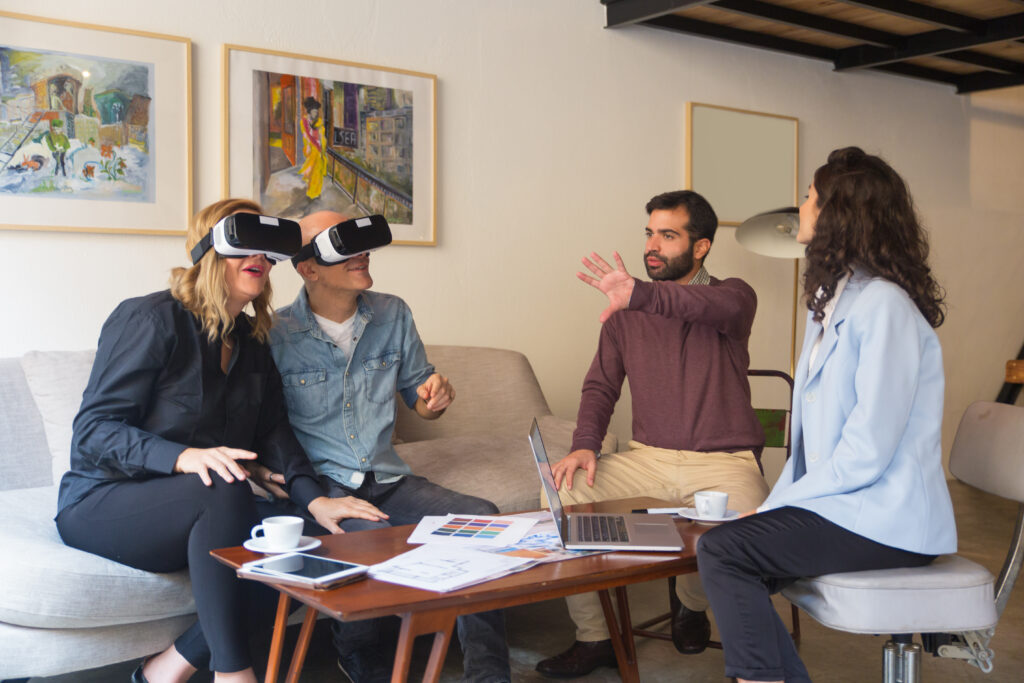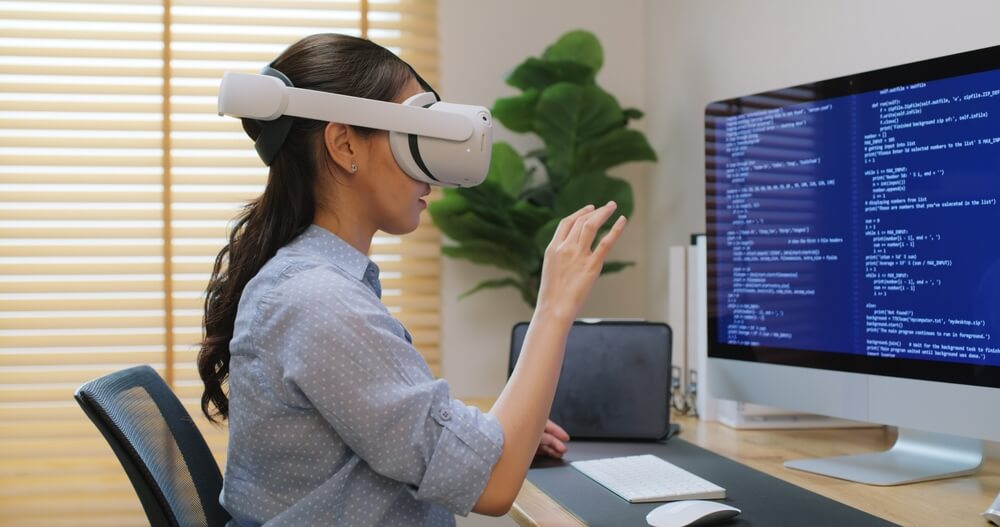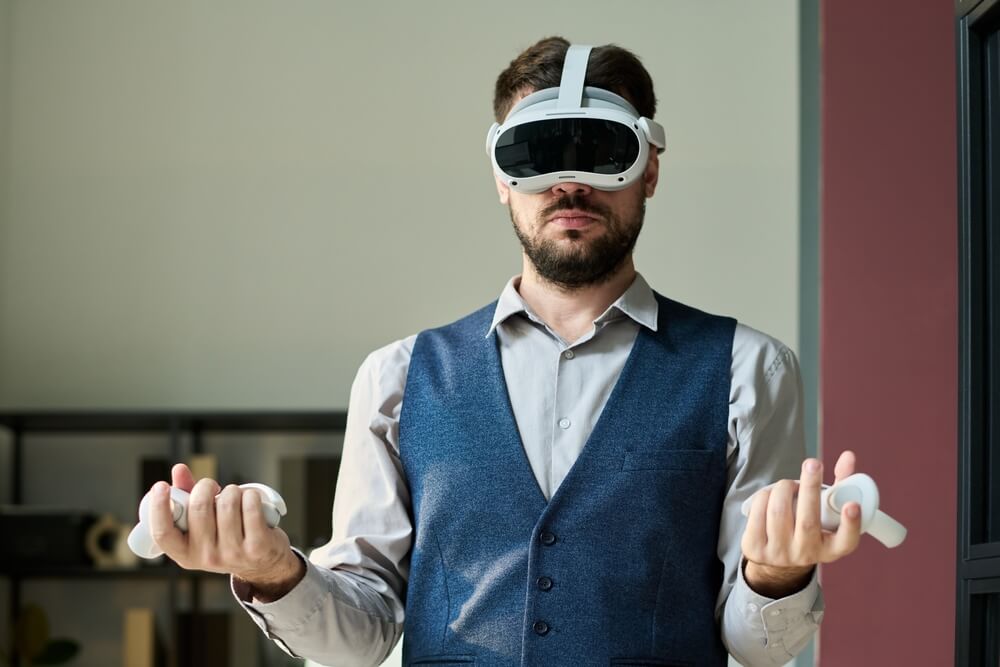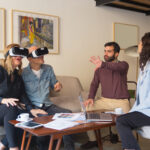Virtual Reality Soft Skills Training
Table of Contents:
Developing soft skills is very important for employees regardless of the industry they work in. Although soft skills, whether psycho-physical or social, have only recently been considered important in the recruitment process, they are now a significant advantage when applying for a job, as well as being useful in the performance of daily duties once a job has been secured. So, what does VR technology, or virtual reality, have in common with soft skills development? How is virtual reality soft skills training conducted? This article investigates to give you the answers.
What are soft skills?
Soft competencies are personal and interpersonal skills. They are psycho-physical traits and social skills that determine, among other things, how you behave, how you organize your work, and how you integrate with other people. As a result, they increase your value in the labor market and make it easier to perform daily duties. Examples of soft skills are:
- resistance to stress,
- communication,
- creativity,
- ability to work in a team,
- assertiveness,
- organization.
Virtual reality soft skills training – why is it gaining in popularity?
Virtual reality is a computer-generated image of artificial reality. Thanks to the possibilities of modern technology, it can resemble the real world. Experts agree that VR technology offers huge, even unlimited, possibilities for designing learning and development programs to train and improve employees’ soft skills in all fields.
VR soft skills training enhances emotional intelligence by immersing trainees in realistic interpersonal scenarios, allowing them to practice empathy, active listening, and conflict resolution in a safe environment.
Emotional intelligence (EQ) is a critical aspect of soft skills, and VR training plays a significant role in its development. With VR, employees can immerse themselves in situations that require them to manage emotions both personally and in others. For example, VR can create scenarios where trainees must handle difficult emotional exchanges in a team setting, like resolving conflicts or managing stress. The emotional cues from the VR simulation guide learners to recognize and regulate emotions, which is a skill not easily taught through traditional training. VR can simulate various emotional responses, making it an effective tool for employees to practice handling stress, anxiety, and frustration in real-time. These experiences, combined with real-time feedback, result in more effective training outcomes, fostering a workforce that is better equipped to handle emotional situations.
VR’s immersive nature provides a unique opportunity for repeated practice without real-world consequences, which has been shown to improve retention and transfer of soft skills to workplace settings more effectively than traditional role-playing or e-learning.
Unlock the future with Mazer: Your innovation partner.
Comparison between VR and traditional soft skills training
Traditional soft skills training typically involves role-playing, seminars, or e-learning modules. While these methods are valuable, they often lack the realism and immersive experience that VR provides. Role-playing, for example, may be limited in how accurately it represents emotional situations or the intensity of workplace conflicts. E-learning can provide theoretical knowledge, but it lacks the practical, hands-on experience needed to truly develop soft skills. On the other hand, VR offers an experience that mimics real-world situations, enabling practical learning and giving employees the chance to repeat scenarios until they feel confident in their responses. Moreover, VR training allows for the personalization of learning experiences. Unlike a one-size-fits-all approach, VR systems can adjust based on the learner’s performance, offering targeted practice on specific soft skills that need improvement.
Virtual reality soft skills training – in what industries can it be used?
We can divide training courses by the types of skills they help us develop. For example, we have the opportunity to participate in hard and soft skills training. How do they differ? Hard skills training is professional and specialized. When participating in such training, we focus on acquiring and mastering specific skills that we will use at work, such as operating machinery. On the other hand, soft skills training develops individual qualities and abilities, such as public speaking and negotiation techniques.
Industries such as healthcare and customer service increasingly adopt VR training to prepare staff for high-stress, emotionally charged situations, including patient communication and de-escalation techniques, which are difficult to replicate in traditional training environments.
Virtual reality soft skills training is often used to train people working in difficult, stressful, or dangerous conditions. These techniques work well in such industries as sales, commerce, medicine, the military, PR, new media, and many others.
In the customer service industry, VR simulates difficult interactions with angry or distressed customers, helping employees develop their conflict resolution and active listening skills. Similarly, in sales training, VR can simulate high-pressure negotiations, allowing trainees to practice persuasion, assertiveness, and negotiation techniques without the fear of real-world failure. By using these tailored, real-world scenarios, employees can confidently enhance their interpersonal abilities.
Military and emergency response units benefit from VR soft skills training by simulating leadership under pressure, teamwork in chaotic environments, and decision-making in crises, leading to improved operational outcomes.
VR for soft skills training – discover the advantages
According to recent research, virtual reality soft skills training takes less time than traditional methods. This is because complete immersion in virtual reality engages all the senses and facilitates maximum focus. Because of this, the training material is worked through more quickly, and knowledge absorption is much more effective. Interestingly, VR soft skills training also affects the confidence with which trainees implement what they have learned. Another significant advantage is that virtual reality soft skills training is more cost-effective – knowledge is assimilated in a shorter period, so employees can almost immediately use it in their daily work.
The benefits of VR training often outweigh the initial investment. Traditional training methods, such as hiring external trainers, organizing face-to-face workshops, and paying for travel and accommodations for employees, can become extremely costly over time. VR, although requiring an initial setup cost, reduces long-term expenses. With VR, companies can train employees repeatedly without incurring additional costs for each session.
A 2023 meta-analysis demonstrated that learners who engaged in VR-based soft skills training experienced a 30% increase in confidence and interpersonal effectiveness compared to those undergoing conventional training.
Virtual reality will undoubtedly dominate the desktop training and e-learning market very soon. This is because adequately executed VR soft skills training includes both the essential elements of business knowledge concerning social situations and behavioral training under controlled conditions.
Moreover, VR platforms often include AI-driven analytics that provide trainers and employees with detailed feedback on emotional cues, communication effectiveness, and behavioral patterns, enabling continuous personalized improvement.
This is important from the point of view of both the employer and the employee because rapid and effective development of soft skills is the key to ensuring stable development and market success for any business.
Looking forward, the integration of VR with biometric sensors to monitor stress levels and physiological responses during training promises to further enhance soft skills development by enabling real-time adaptive scenarios tailored to the learner’s emotional state.
Key Takeaways
VR training is an effective and cost-efficient way to develop essential soft skills such as communication, emotional intelligence, and teamwork. By immersing employees in realistic, interactive scenarios, VR enhances learning, boosts retention, and accelerates skill application in real-world situations. It is highly customizable, allowing tailored programs for various industries and skill levels. VR is especially beneficial for remote teams, providing accessible training that fosters collaboration and engagement. While initial costs may be high, the long-term savings in travel, instructor fees, and training time make VR an investment that pays off. With measurable improvements in confidence and effectiveness, VR training is quickly becoming the future of employee development, offering real-time feedback and personalized learning experiences.
Read also: Sales Training In Virtual Reality
How does virtual reality (VR) technology helps with soft skills development?
VR technology is a valuable tool for soft skills development. It creates immersive environments where individuals can practice and improve their stress management, communication, and teamwork, in a controlled and safe setting.
What advantages does virtual reality soft skills training offer over traditional methods?
Virtual reality soft skills training can be more time-efficient, engaging, and cost-effective compared to traditional methods. It allows for complete sensory immersion, facilitating faster knowledge absorption and increased confidence in applying learned skills.
In which industries is virtual reality soft skills training commonly used?
VR soft skills training is utilized in various industries, including sales, commerce, medicine, the military, PR, and new media. It can be especially helpful for employees working in stressful or challenging conditions where soft skills are essential.
Unlock the future with Mazer: Your innovation partner.

Author: Rafał Siejca
Rafal has over twenty years of corporate experience, including roles at Millennium Bank, Comarch, and leading software teams at PZU, one of Europe’s largest insurance companies. As one of Poland’s few true VR experts with a decade of experience, he ensures timely, high-quality project delivery as CEO and CTO.










